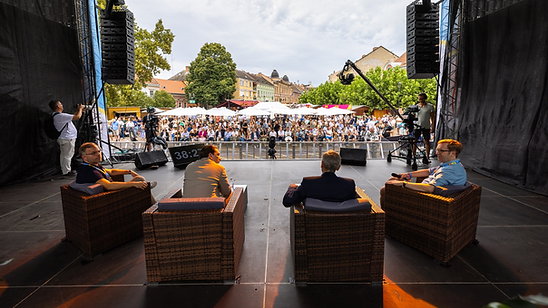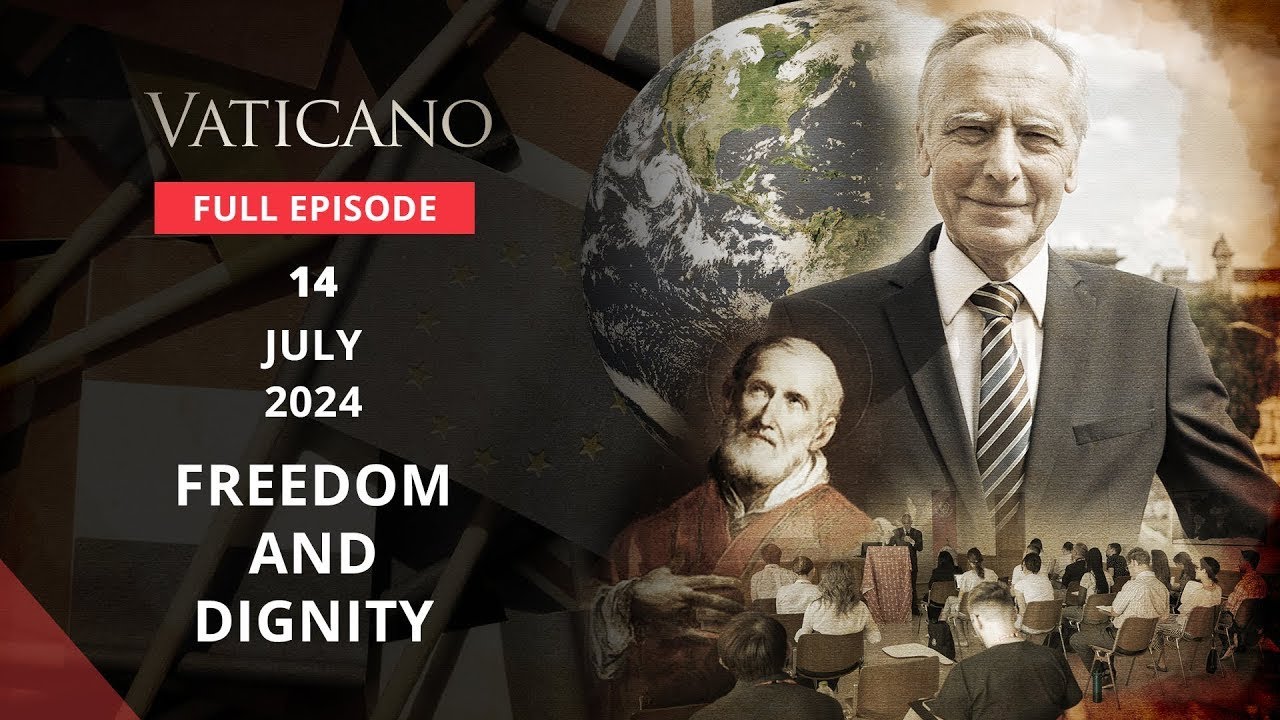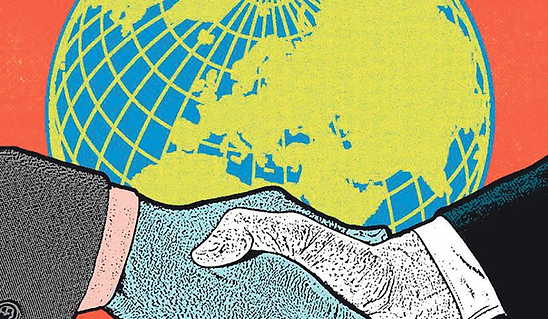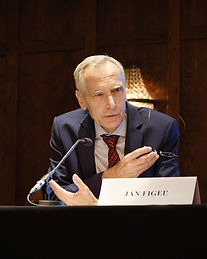Category: English
-
MCC Feszt 2024 Kicks Off With Fascinating Discussion About the European Parliamentary Elections
A backstage view of the panellists and the moderator at the first panel discussion of the MCC Feszt 2024 Tamás Gyurkovits/Hungarian Conservative The fourth edition of MCC Feszt in Esztergom, Hungary is taking place between 1 and 3 August this year. Director General Zoltán Szalai said in his opening address that they are hopeful they
-
Freedom and Dignity | Ján Figeľ on EWTN
Hear from the EU’s first Religious Freedom envoy on Europe’s inadequate efforts to protect religious freedom, as he visited the Vatican to discuss human dignity.
-
Ján Figeľ challenges COVID-19 worship bans at Top Court
Dr. Ján Figeľ is a long-serving EU official and was Special Envoy for Freedom of Religion or Belief outside the EU from 2016 to 2019. He is seeking to defend freedom of religion in his home country and has submitted an application to the European Court of Human Rights on the issue of religious freedom
-
For peace, we need a Schuman and Marshall Plan 2.0
Shared security should be offered to all states of NATO and former Soviet Union Illustration by Alexander Hunter/The Washington Times OPINION: Three wars in Europe in the 20th century escalated into tragic and long global conflicts: World War I, World War II and the Cold War. Danger of a similar escalation of the conflict in
-
Building Peace Beyond Borders: An Initiative organized at the Vatican
The legacy of the Venerable Robert Schuman, often hailed as the founding father of a united Europe, continues to inspire efforts to build peace across the continent. Schuman’s guiding principle, “Economic progress must go hand in hand with moral progress,” remains a central tenet for those dedicated to fostering harmony and cooperation. Monsignor Bernard Ardura,
-
The future of Europe’s research and innovation programmes on the cusp of a new era
With the EU’s current research and innovation programme, Horizon Europe, ending in 2027, the ground is now being set for its successor: one that needs to match the caliber of Europe’s knowledge base with the creativity and precision needed to drive the bloc’s competitiveness for the next decade, write José Manuel Barroso and Ján Figel.
-
The future of Europe’s research and innovation programmes on the cusp of a new era
With the EU’s current research and innovation programme, Horizon Europe, ending in 2027, the ground is now being set for its successor: one that needs to match the caliber of Europe’s knowledge base with the creativity and precision needed to drive the bloc’s competitiveness for the next decade, write José Manuel Barroso and Ján Figel.
-
The Strong and Deep Nexus Between Human Dignity and Religious Freedom
Peace is a fruit of justice. The core of justice is based on respect of fundamental human rights. And the foundational principle of human rights is dignity. Today, the agenda of human rights is hijacked by various groups representing ideologies, violent extremism, or ethical relativism. We also tend to forget or neglect our human duties
-
The Strong and Deep Nexus Between Human Dignity and Religious Freedom
Peace is a fruit of justice. The core of justice is based on respect of fundamental human rights. And the foundational principle of human rights is dignity. Today, the agenda of human rights is hijacked by various groups representing ideologies, violent extremism, or ethical relativism. We also tend to forget or neglect our human duties
-
Strong and deep nexus between human dignity and religious freedom
By Jan Figel, Former EU Commissioner and FoRB Special Envoy HRWF (10.12.2023) – Today, the agenda of human rights is hijacked by various groups representing ideologies, violent extremism or ethical relativism. We also tend to forget or neglect our human duties towards the other and towards society. Peace is a fruit of justice. The core of






